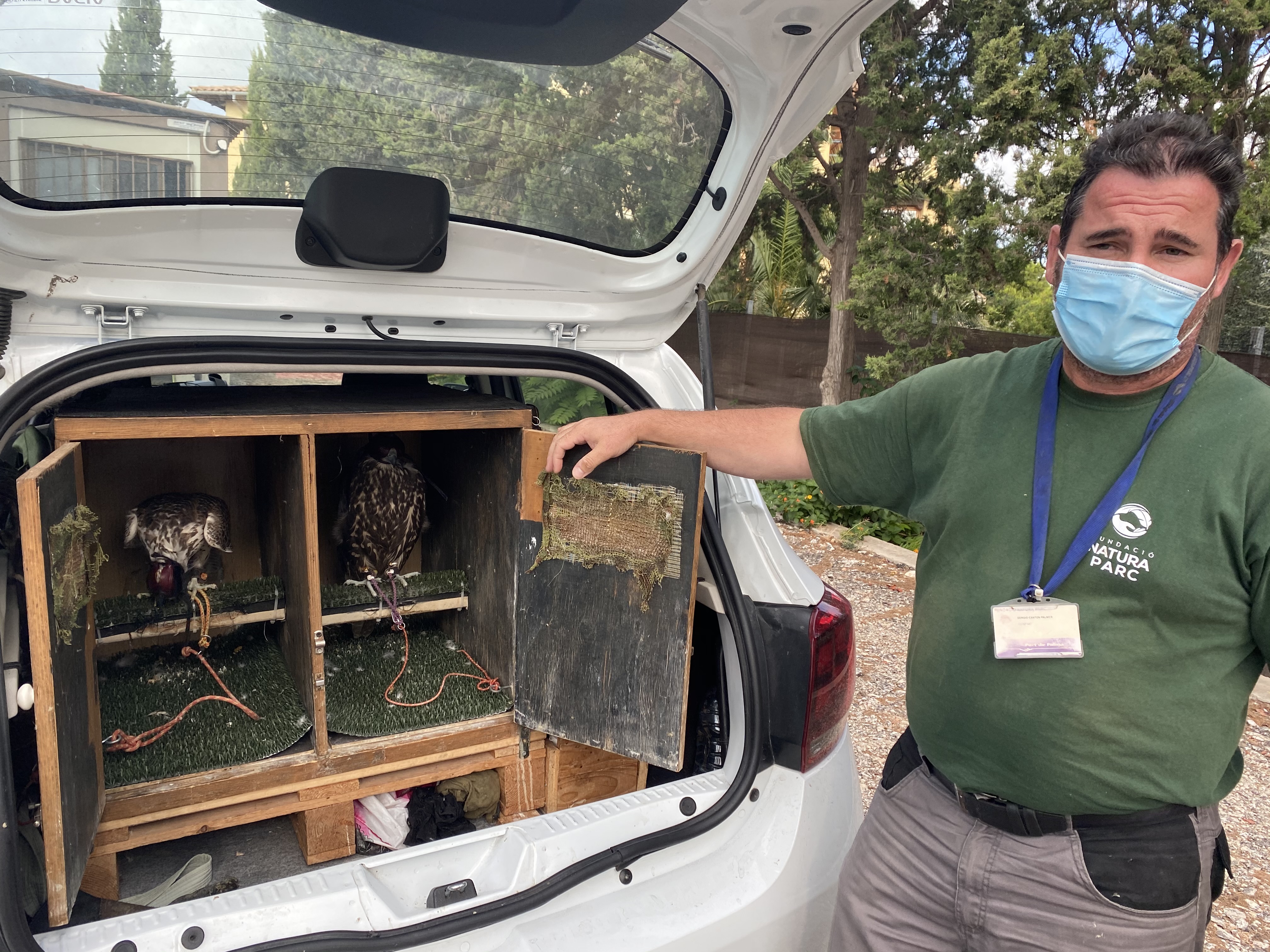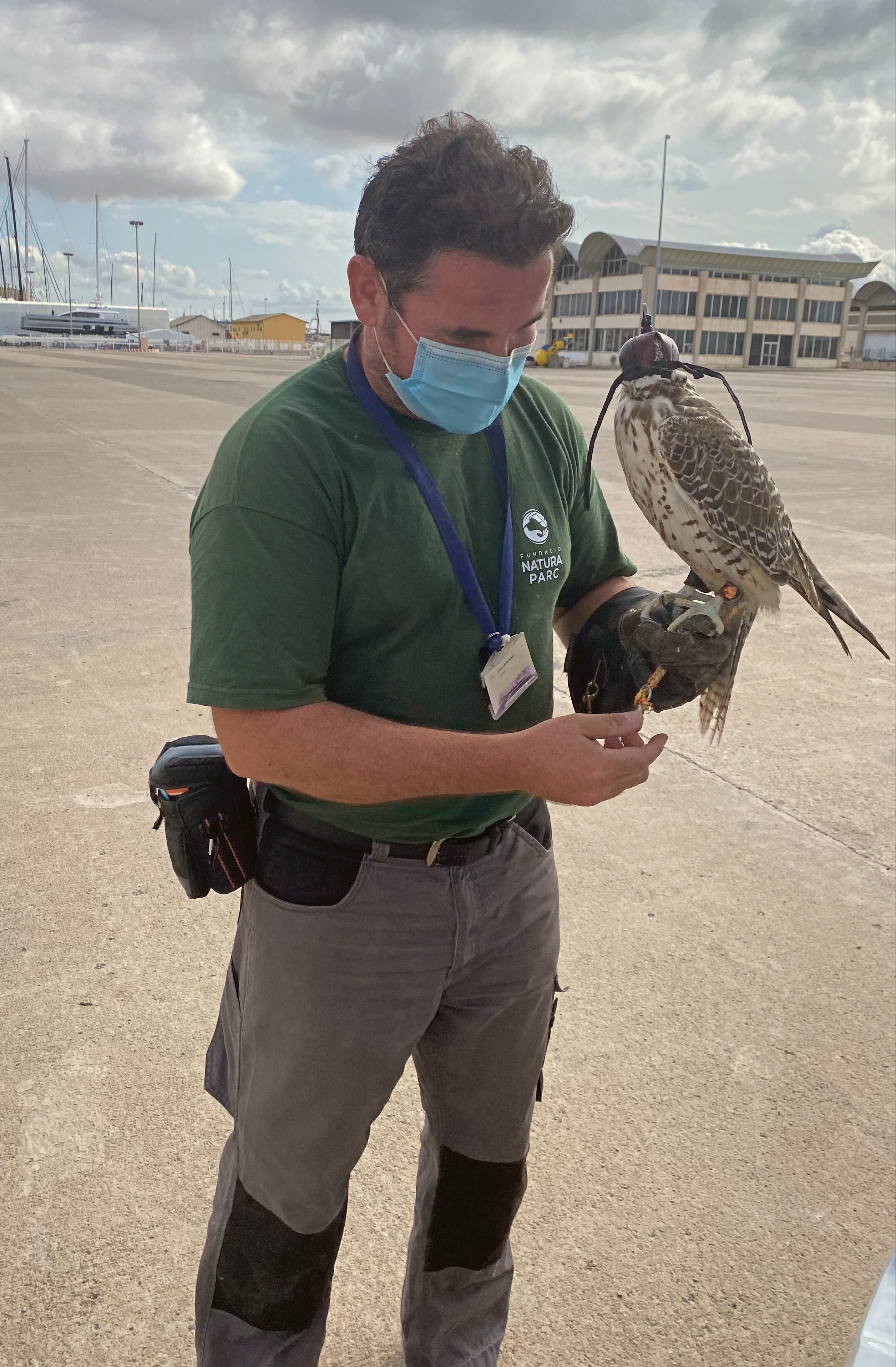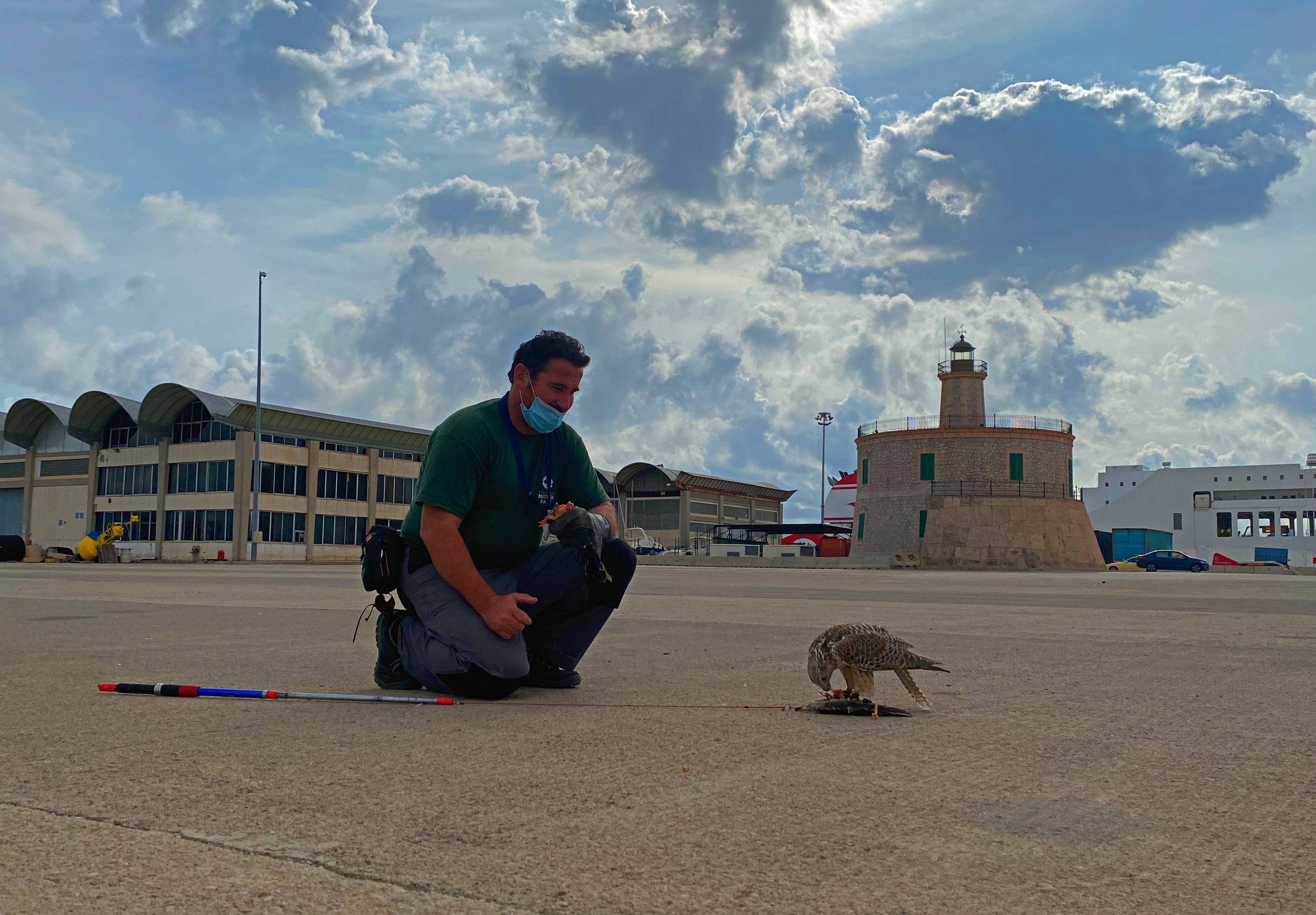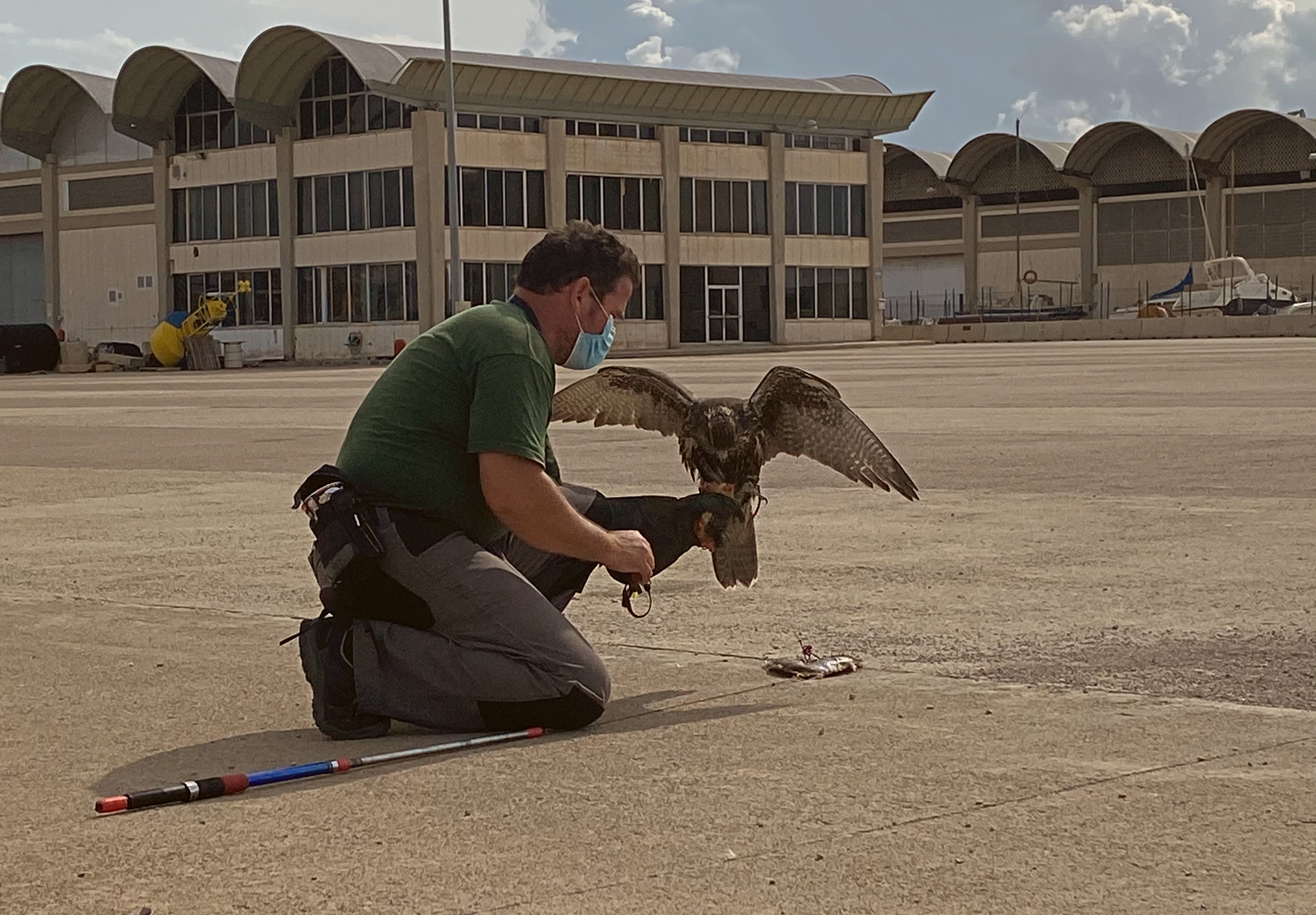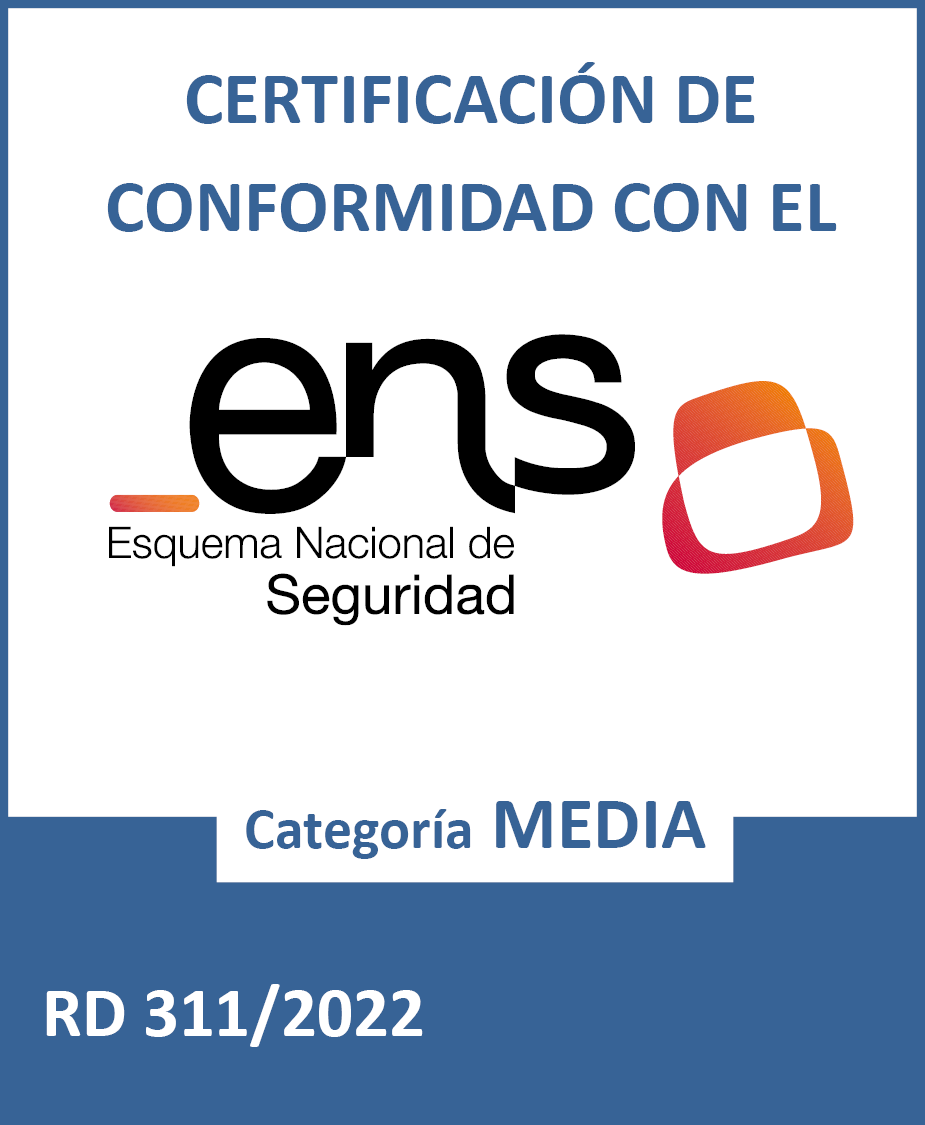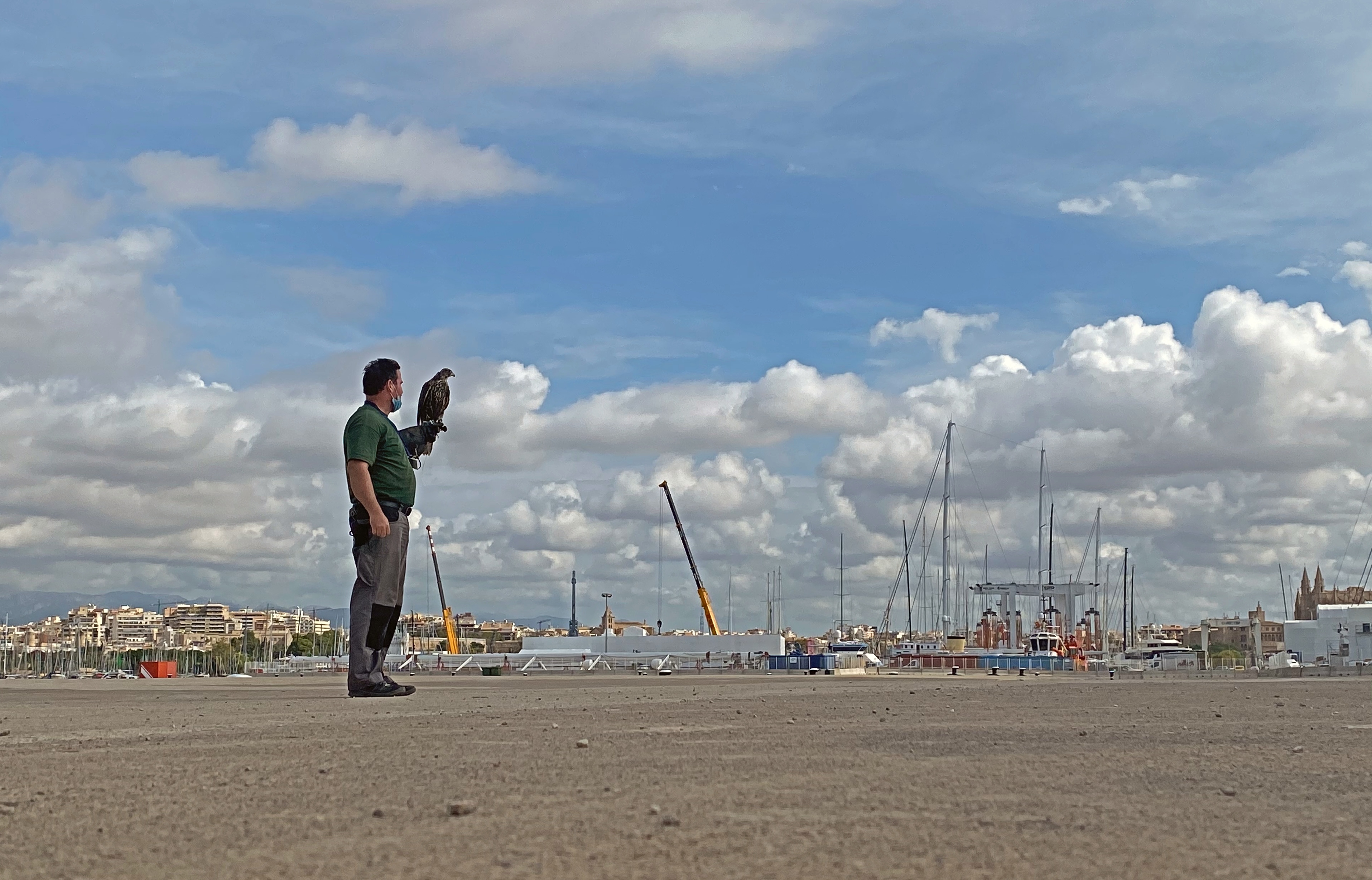
Flying high in the Port of Palma
Palma
01/10/2020
Early in the morning, Sergio Cantón heads for the Port of Palma to carry out essential conservation work. He is one of the people responsible for looking after, feeding and training the falcons and Harris eagles that fly around the port and scare away wild birds such as seagulls, pigeons and wagtails. The importance of this surveillance service is paramount, as the corrosive effect of bird droppings deteriorates the port's facilities, electronic systems and boats. And not only that: they can also cause and spread diseases through the air conditioning systems.
The presence of falcons flying over the area frightens the gulls and they do not return, although new ones come, so the work has to be ongoing.
Best known for their work at airports, where falconers ensure that birds do not interfere with flights, this service was launched more than a decade ago at the Port of Palma. Since then, says Sergio Cantón, the results are clear: "Before, we had roosts where some 3,000 or 4,000 birds were grouped together in the Port of Palma alone. Thanks to this service, the population is kept under greater control".
Each falconer has a group of birds under his care, mainly falcons and Harris eagles. They are in charge of weighing them, feeding them and controlling possible behavioural changes. Once the team is in place, two types of rounds are carried out: continuous dissuasive flights or those focused on a sensitive area where a problem is identified.
The way of working shows the trust between the trainer and the bird. From food preparation to flight control: "Each bird is unique," explains Canton. "Some have innate talent, but they all require a lot of training. In many cases, the falconer has seen the birds being born and has accompanied them throughout their lives: "The relationship is very special. When they are very young they are afraid to fly, and are even a little clumsy. Little by little you see the progress in their training, and it is really rewarding".
From dawn to dusk, the team of specialists from Natura Parc move around the Poniente Quay, the Commercial Quays and the West Breakwater, where the birds' flights are controlled.
But, as the falconer mentions, the responsibility for keeping wildlife in check is a global one: "A simple, poorly closed chest is a hotbed for birds, or throwing bread to the seagulls from the boats".
This is a task which is unfamiliar to a large part of the population and which, in an era marked by technology, shows us that the simplest solutions are the most sustainable over time.


